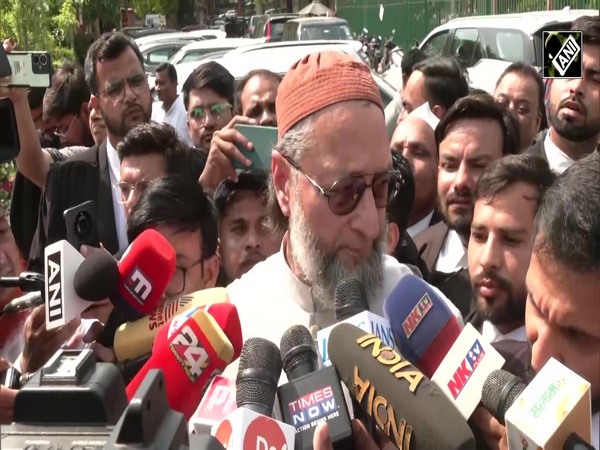
"Insult to nation, Muslims of India": Rajnath Singh takes jibe at those 'glorifying' Aurangzeb
Apr 18, 2025
Sambhaji Nagar (Maharashtra) [India], April 18 : Defence Minister Rajnath Singh on Friday criticised those who praise historical figures like Babur, Timur, Aurangzeb, and Ghaznavi, who are often associated with invasions and conquests in India.
Singh questioned the rationale behind glorifying these figures and suggested it could be seen as insulting the Muslim community while unveiling a statue of Maharana Pratap in Chhatrapati Sambhaji Nagar, Maharashtra.
He said that such praise is expected from Pakistan, but questionable when it comes from within India. "If Babur, Taimur, Aurangzeb, and Ghaznavi are praised in Pakistan, then it is understandable because both their policy and politics are anti-India. Whatever missiles they (Pakistan) have made, they have named them after invaders like Babur, Ghaznavi. We understand Pakistan's anti-India stand but what is the compulsion of these people? Do they think that by supporting Babar, Taimur, Aurangzeb, Ghaznavi they will get the support of the Muslim community? By doing this, they are also insulting the Muslim community of the country," he said.
Singh emphasised India's inclusive ethos, drawing from historical figures like Chhatrapati Shivaji Maharaj and Maharana Pratap, who promoted unity and welfare for all, regardless of religion.
"We do not do politics of religion. For us, all Indians are equal. We have learnt this from our ancestors. We have learnt it from our idol Chhatrapati Shivaji Maharaj, Maharana Pratap, who never discriminated with people on the basis of religion. They have always worked for the welfare of people with the ideals of Ram-Rajya...," said Singh.
He contrasted the BJP's approach to governance with that of "so-called secularists", accusing them of selectively highlighting historical figures and ignoring others like Dara Shikoh and Adil Shah who exemplified tolerance and cultural syncretism.
"These so-called secularists don't talk about Dara Shikoh, similarly, they don't talk about Adil Shah. Many of Adil Shah's orders begin with the worship of Goddess Saraswati," said the Defence Minister.
Dara Shikoh who was Mughal emperor Shah Jahan's son and expected heir, was killed on the orders of his brother Aurangzeb in 1659 after losing the war of succession, was known for his efforts to promote interfaith dialogue and translating Hindu scriptures, while, Sultan Ibrahim Adil Shah II of Bijapur's book, "Kitab-i-Nauras", begins with a prayer to the Goddess Saraswati, the Hindu deity of knowledge, learning, and the arts. He also referred to Goddess Saraswati as his mother and Lord Ganesha as his father, demonstrating his reverence for these deities.
The central government approved the request to rename the city from Bijapur to "Vijayapura" on November 1, 2014.
Criticising what he called the post-independence distortion of Indian history, Singh accused left-leaning historians of marginalising national icons.
"Unfortunately, after independence, the course of history writing took a different turn. Influenced by Marxist and leftist ideologies, some historians downplayed or completely erased the contributions of heroes like Shivaji and Maharana Pratap. This was a grave injustice to our heritage and an attempt to deprive future generations of their glorious legacy."
He further condemned the portrayal of Aurangzeb in history textbooks, arguing that he was depicted in an undeservedly positive light.
"Presenting a cruel and ruthless ruler like Aurangzeb as a hero is misleading. Those glorifying him should at least read Jawaharlal Nehru's writings to understand the truth about his reign."
Aurangzeb has been a deeply polarising figure in Maharashtra, and controversies surrounding the Mughal ruler frequently resurface in the state's political discourse.
Nagpur was the centre of violent clashes between two communities after right-wing outfits held a protest demanding the removal of Aurangzeb's tomb.
Samajwadi Party MLA Abu Azmi recently sparked controversy in the Maharashtra Assembly, where he was suspended for defending Mughal Emperor Aurangzeb, describing him as a "good administrator."
Aurangzeb's reign is often associated with religious intolerance and military expansion. His conflicts with the Maratha Empire, including the capture and execution of Sambhaji, are significant historical events.























